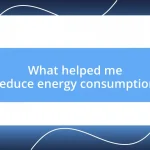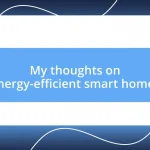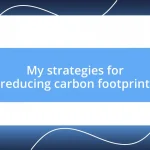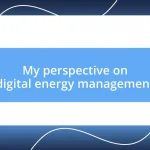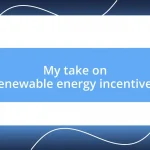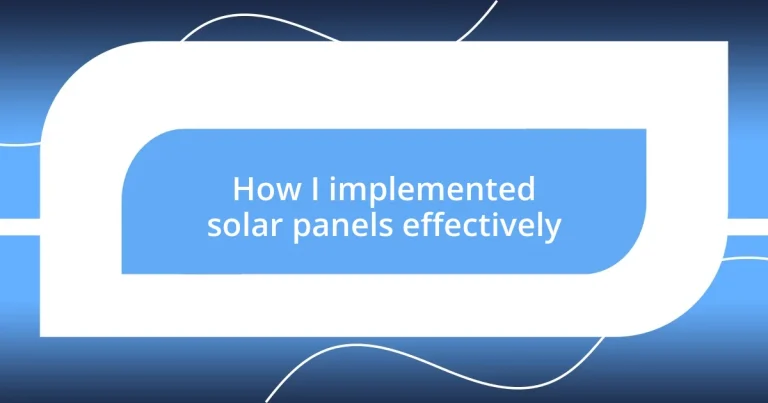Key takeaways:
- Understanding solar panel benefits includes cost savings, environmental impact, and increased property value, making it a strategic investment.
- Evaluating your energy needs and selecting suitable solar technology are crucial steps that influence efficiency and long-term satisfaction.
- Researching government incentives and reliable contractors can significantly enhance the financial feasibility and overall success of solar panel installation.
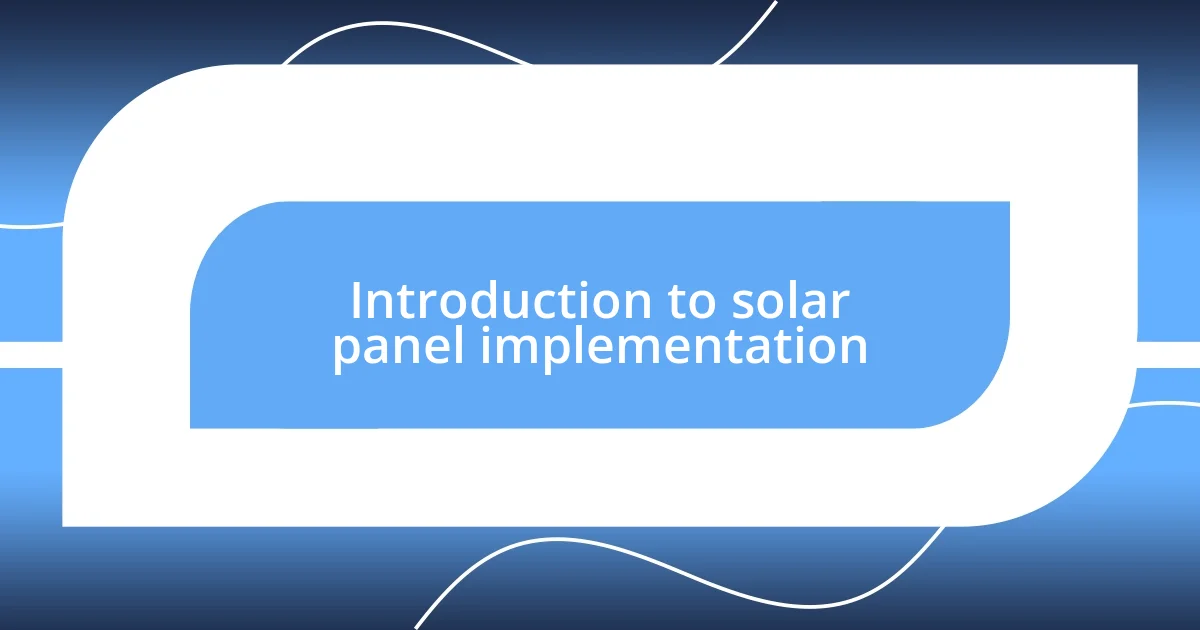
Introduction to solar panel implementation
When I first considered implementing solar panels, I wasn’t just looking at potential energy savings; I was envisioning a sustainable future for my home and family. It’s an exciting journey that involves understanding the technology, the installation process, and the long-term benefits. Have you ever thought about how much control we can have over our energy consumption? That’s the power of solar.
Getting started with solar panel implementation can feel overwhelming. I remember grappling with questions about costs, local regulations, and the best systems available. What I quickly learned was that it’s about more than just choosing the right panels; it’s about finding a reliable installer who shares your vision for sustainability. That partnership is crucial.
As I embarked on my solar journey, I felt a mix of excitement and trepidation, wondering what the process would be like and how much it would really change my daily life. Would I truly see a difference in my energy bills? Spoiler alert: I did! Embracing solar wasn’t just about environmental responsibility; it was a transformative experience that made me feel more connected to my energy choices.
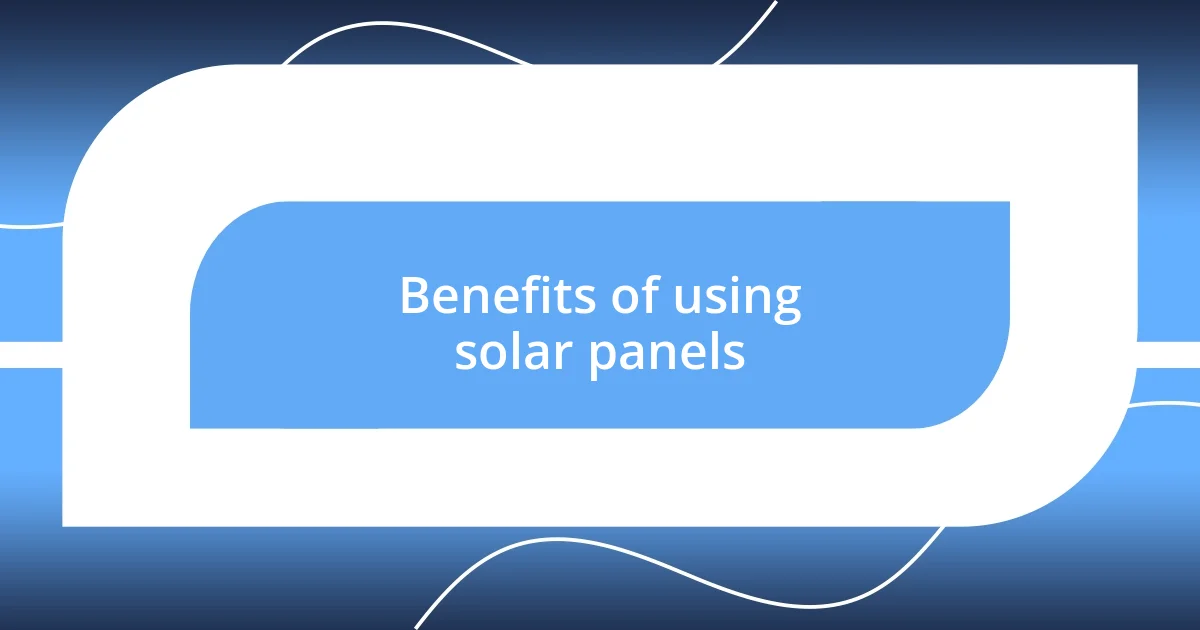
Benefits of using solar panels
The benefits of using solar panels extend far beyond just reducing utility bills. I can vividly recall the day when I received my first energy statement post-installation. I was thrilled to see a significant drop in costs! The long-term savings accumulated month after month have been nothing short of remarkable, essentially paying for the system over time while providing me with free electricity on sunny days.
Moreover, embracing solar has not only been financially advantageous but also environmentally rewarding. Reducing my carbon footprint has been incredibly fulfilling. Knowing that I’m harnessing clean energy to power my home gives me a profound sense of responsibility toward the planet. It’s a little like giving back; every time I turn on the lights, I feel proud knowing I’m contributing to a cleaner Earth.
I would be remiss not to mention the increase in property value as another compelling benefit. When I decided to sell my home a few years down the line, the solar panels were a standout feature for potential buyers. The appeal of lower energy costs and environmentally friendly living resonated with many families. This was more than just an investment in energy—it turned out to be a strategic move for my property’s future, blending sustainability with smart financial planning.
| Benefit | Description |
|---|---|
| Cost Savings | Significant reductions in monthly energy bills and long-term savings. |
| Environmental Impact | Reduction of carbon emissions and promotion of renewable energy sources. |
| Property Value Increase | Enhanced resale value and attraction of eco-conscious buyers. |
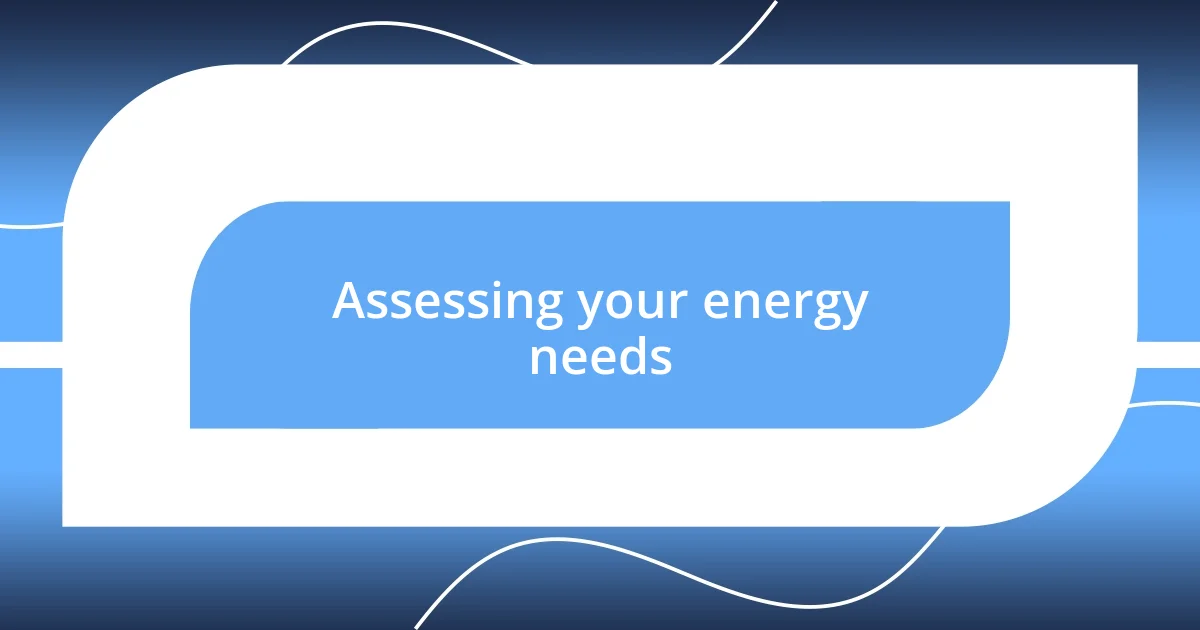
Assessing your energy needs
Assessing your energy needs is a crucial step before diving into solar panel installation. I remember when I first sat down with a notepad and my utility bills, trying to figure out how much energy my household consumed each month. It was eye-opening! Understanding your energy needs allows you to tailor your solar system appropriately, ensuring that it’s not only efficient but also cost-effective.
To help you assess your energy needs, consider these key factors:
- Monthly Energy Usage: Look through your past utility bills to find your average consumption in kilowatt-hours (kWh).
- Appliance Inventory: Take stock of all your major appliances and their energy ratings; this can help pinpoint high-consumption devices.
- Future Needs: Think about any lifestyle changes that may affect your energy use, like bringing home a new appliance or planning to grow your family.
- Peak Usage Times: Identify when you use the most energy—is it during the day with air conditioning, or at night with lights and electronics?
- Seasonal Variations: Be aware that energy consumption can vary significantly with the seasons, so consider seasonal peaks in your calculations.
Having these insights not only prepared me for the installation process but also shaped my expectations about how much energy I could generate, ultimately leading to smarter decisions for my home.
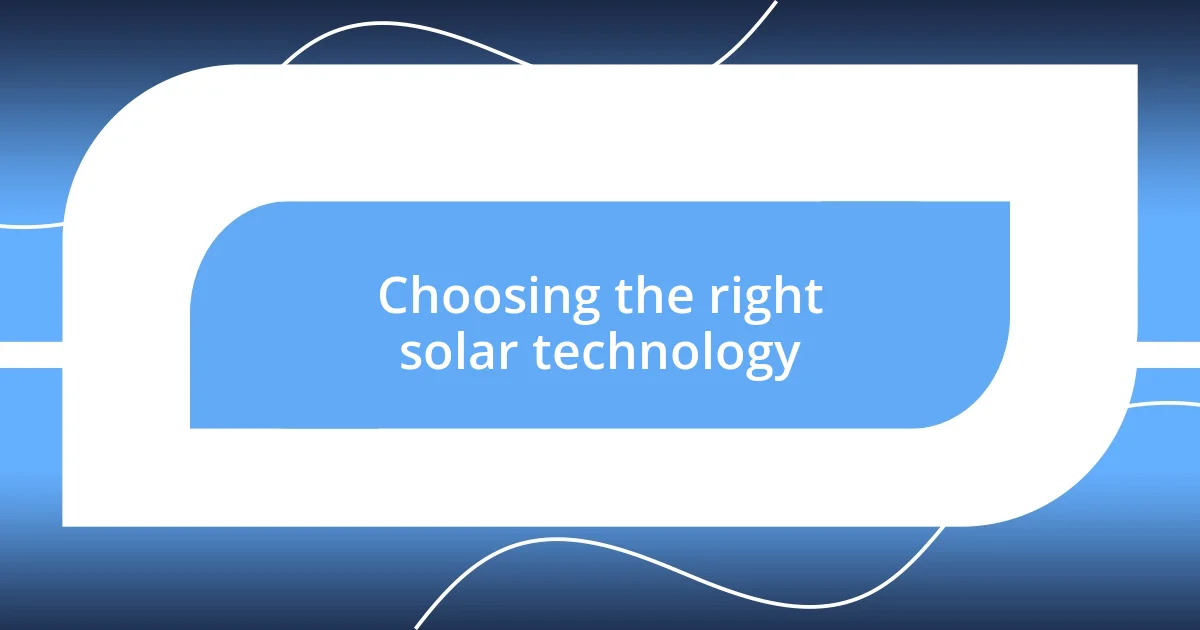
Choosing the right solar technology
Choosing the right solar technology is a fundamental step that can significantly impact your solar energy experience. When I was exploring options, I found myself caught between the efficiency of monocrystalline panels and the cost-effectiveness of polycrystalline ones. Ultimately, my decision came down to my long-term energy goals. I wanted reliable performance, so I opted for monocrystalline panels, knowing they would yield more energy in smaller spaces.
I recall the day my installer educated me on thin-film technology. Initially, I was skeptical—could such lightweight panels deliver adequate power? But as I learned that they excelled in shading and temperature tolerance, I saw the advantages they could offer for unique installations. It made me wonder: what environment truly suits my needs, and how can I maximize my roof space? Diving into the specifics really put things into perspective for me.
Layering in practical experience, I recommend looking at warranties and durability ratings when selecting solar technology. For me, an extended warranty was a comforting factor, as investing in solar panels is a sizable commitment. Knowing that I had coverage for at least 25 years gave me peace of mind and reinforced my confidence in the choice I made. Those little details often speak volumes about the technology’s longevity and reliability when faced with harsh weather. So, what’s your priority—initial cost, long-term efficiency, or warranty coverage? Identifying what matters most to you will guide you toward the right decision.
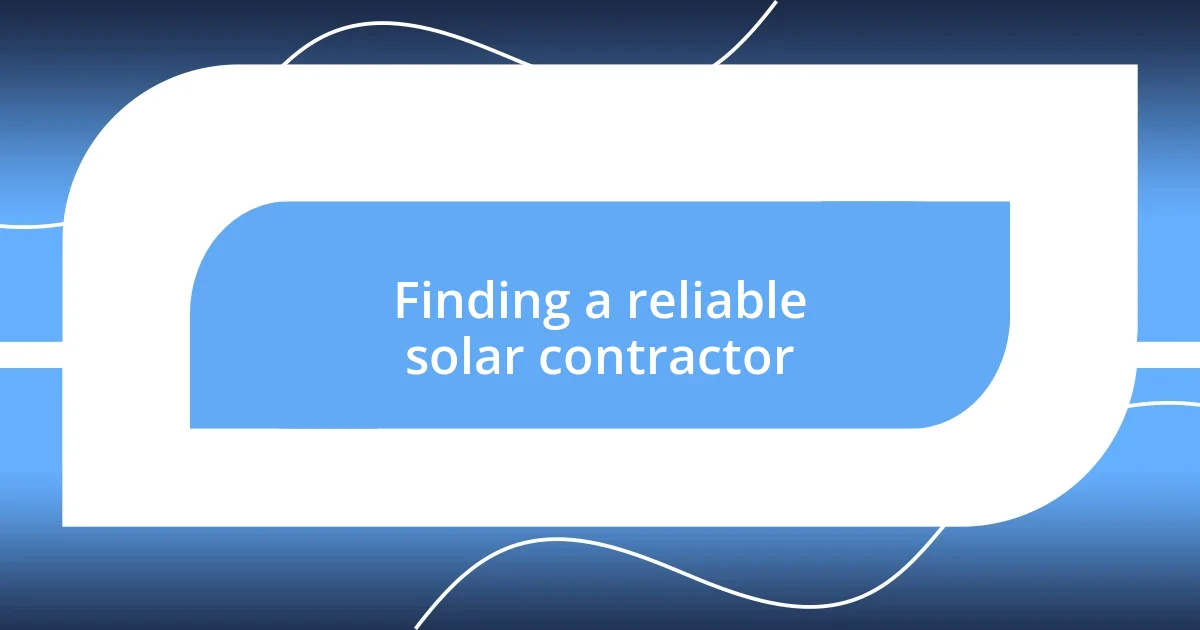
Finding a reliable solar contractor
Finding a reliable solar contractor is one of the most significant steps in the solar panel installation process. I remember feeling overwhelmed as I sifted through countless options. I began by asking friends and family for referrals, which turned out to be invaluable; personal recommendations often reveal much more than online reviews ever could. It made me wonder—how many people just choose the first contractor they find, without digging deeper?
Once I had a list, I focused on checking credentials like licenses and insurance, which felt like a safety net for my investment. During my research, I was pleasantly surprised by how transparent some contractors were about their experience and past projects. One particular contractor impressed me with their willingness to provide references and detailed case studies, making me feel confident in their abilities. It was refreshing to see such commitment, but it led me to ponder—how often do we allow ourselves to be swayed by flashy advertisements instead of evaluating the substance behind services?
After narrowing my selection, I scheduled consultations to really get a sense of each contractor’s approach. I specifically remember how one contractor took the time to explain every detail of the installation process, answering all my questions patiently. This personal touch gave me confidence, showing me that they genuinely cared about not just making a sale but ensuring my understanding and satisfaction. I realized that finding a solar contractor isn’t just about price; it’s about trust and communication. What questions would you ask to ensure you’re making the right choice? Asking the right questions can not only ease your mind but lead you to a contractor who aligns with your needs and values.
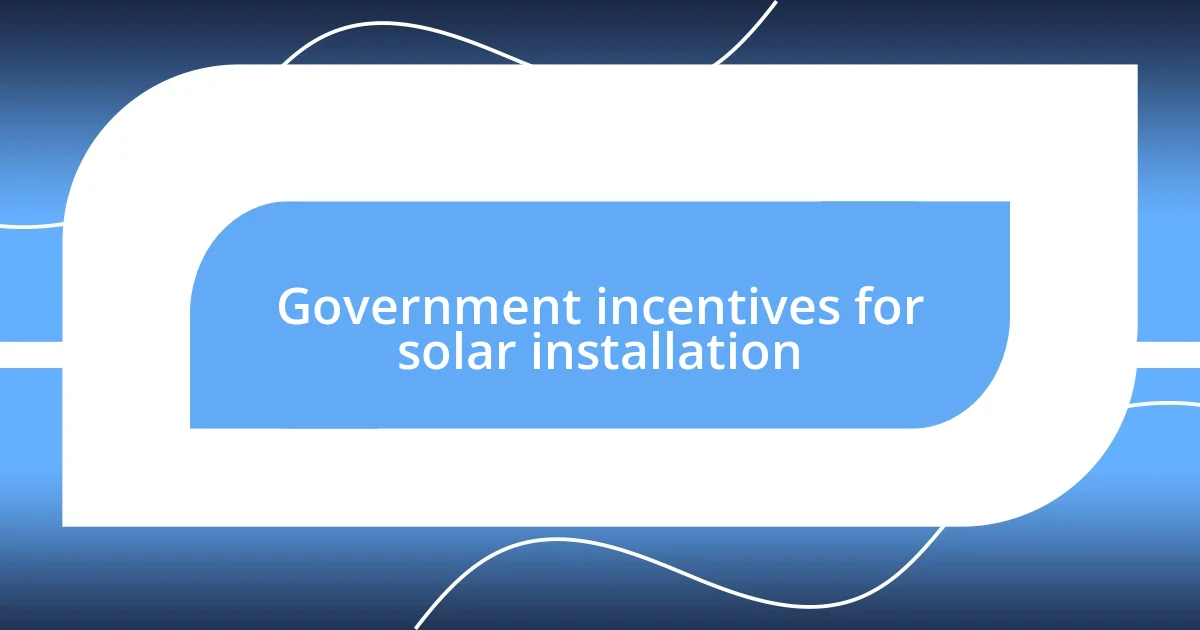
Government incentives for solar installation
Government incentives played a crucial role in my decision to install solar panels. At first, I didn’t fully grasp how many financial benefits were available until I started digging into the options. The realization that federal tax credits could significantly offset installation costs was a game-changer for me and gave me extra motivation to go solar.
As I navigated local policies, I discovered various state and municipal incentives, which often included rebates and even grants for homeowners who opted for solar energy. I vividly remember the moment I calculated how much these incentives could reduce my overall investment. It felt like finding a hidden treasure! Did I ever anticipate such support from my community? Absolutely not, but once I had my paperwork ready, accessing these funds was much simpler than I had imagined.
Taking advantage of net metering was another unexpected benefit that caught my attention. It allowed me to receive credits for the excess energy my panels generated, which really added up over time. I clearly recall seeing my first utility bill with a credit balance, which made me realize just how powerful solar really could be. Questions arose: how long would it take for these savings to cover my initial costs? The answer was startlingly quick, and that sense of financial relief only reinforced my decision to switch to solar energy.



